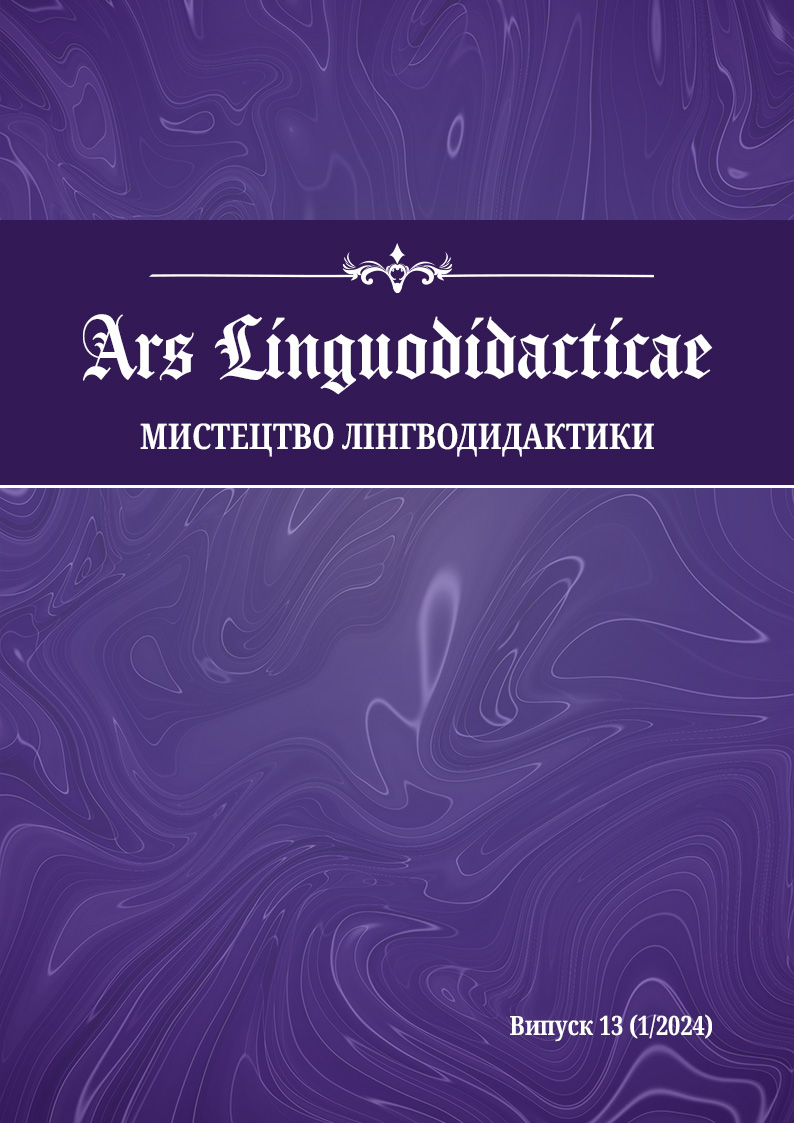Практичне заняття з теми "Навчання англійських модальних дієслів у формі дебатів" для студентів-японістів ІІ курсу бакалаврату
Ключові слова:
англійські модальні дієслова, дебати, студенти-японісти, навички усного англійського мовленняАнотація
У публікації наведено методичний сценарій практичного заняття з курсу "Навчання англійських модальних дієслів" для студентів-японістів другого курсу. Запропонований план має кілька етапів: ознайомлення студентів з модальними дієсловами, підготовка до дебатів, тренування у висловлюванні аргументів, рольова гра та обговорення граматичних аспектів. Предметом дебатів було питання гендерної рівності в Україні, що дало змогу студентам досліджувати соціокультурні аспекти, одночасно покращуючи комунікативні навички.
Завдання для студентів мають на меті: 1)вдосконалити використання модальних дієслів в усному мовленні, 2)побудувати логічні та переконливі висловлювання з аргументацією. Під час підготовки студентам пропоновано праналізувати проблему, здійснити самостійний пошук аргументів в Інтернет-джерелах, продемонструвати критичне мислення.
Форма дебатів сприяє формуванню плинності і зв'язності усного англійського мовлення, набуттю навичок публічного мовлення та розширенню активного словника студентів. Крім того, дебати є засобом підвищення мотивації до вивчення англійської мови та розвитку мовленнєвих компетенцій.
Посилання
Офіційний сайт Президента України. (2024). Гендерна рівність в Україні. Retrieved from https://www.president.gov.ua/en
UNESCO. (2024). Education and Gender Equality. Retrieved from https://en.unesco.org/themes/education-and-gender-equality
##submission.downloads##
Опубліковано
Як цитувати
Номер
Розділ
Ліцензія

Ця робота ліцензується відповідно до Creative Commons Attribution-NonCommercial 4.0 International License.
Ця робота ліцензується відповідно до Creative Commons Attribution-NonCommercial 4.0 International License.
Політика охорони авторських прав відповідно до умов ліцензії: Creative Commons Attribution-NonCommercial (Атрибуція-Некомерційне використання) 4.0 Міжнародна (CC BY-NC 4.0).
Автори, що публікують свої статті в журналі "Ars Linguodidacticae" (журналі відкритого доступу) зберігають за собою такі права:
- Автори зберігають за собою права на авторство своєї статті та надають журналу "Ars Linguodidacticae" право першої публікації рукопису своєї статті на умовах ліцензії Creative Commons (CC BY-NC 4.0) Attribution License, яка дозволяє іншим особам вільно розповсюджувати опубліковану роботу з обов'язковим посиланням на автора оригінальної роботи та першу оригінальну публікацію в журналі "Ars Linguodidacticae". Інформація про збереження права на авторство надається на титульній сторінці статті.
- Автори зберігають за собою право укладати окремі угоди на неексклюзивне розповсюдження своєї статті у тому вигляді, в якому вона була опублікована в журналі "Ars Linguodidacticae" (наприклад, розміщувати статтю в електронних бібліотеках, архівах та каталогах або публікувати у складі інститутських збірників та монографій), за умови обов'язкового повного посилання на першу оригінальну публікацію в журналі "Ars Linguodidacticae".
- Політика журналу "Ars Linguodidacticae" дає змогу та заохочує розміщення авторами в мережі Інтернет (наприклад в інститутському репозитарії або на персональному сайті) рукопису роботи як до її подання до редакції, так і під час її редакційного опрацювання, оскільки це сприяє продуктивній науковій дискусії та позитивно позначається на оперативності й динаміці цитування статті.
Редакція журналу зберігає за собою видавничі права на:
- зверстані оригінали статей та весь номер журналу;
- оформлення журналу, а також оригінальні ілюстративні та додаткові матеріали;
- репринтні перевидання журналу в друкованому та електронному вигляді.
Політика охорони авторських прав провадиться відповідно до умов ліцензії: Creative Commons Attribution-NonCommercial (Атрибуція-Некомерційне використання) 4.0 Міжнародна (CC BY-NC 4.0).
Для отримання додаткової інформації, будь ласка, прочитайте повний текст Публічної ліцензії CC BY-NC 4.0
Creative Commons Attribution-NonCommercial 4.0 International License.

